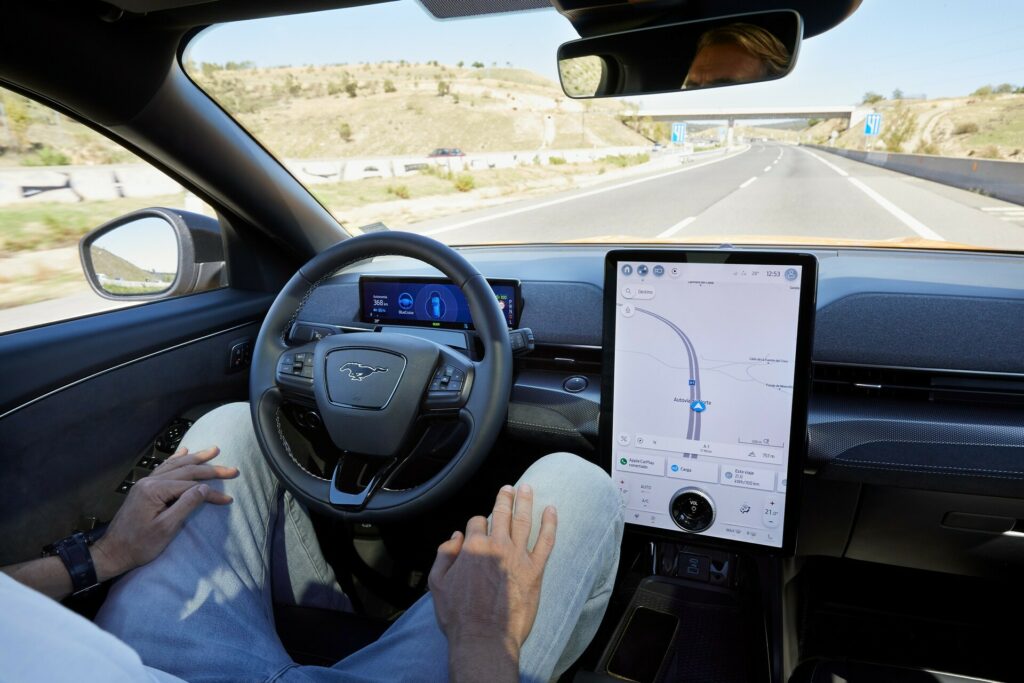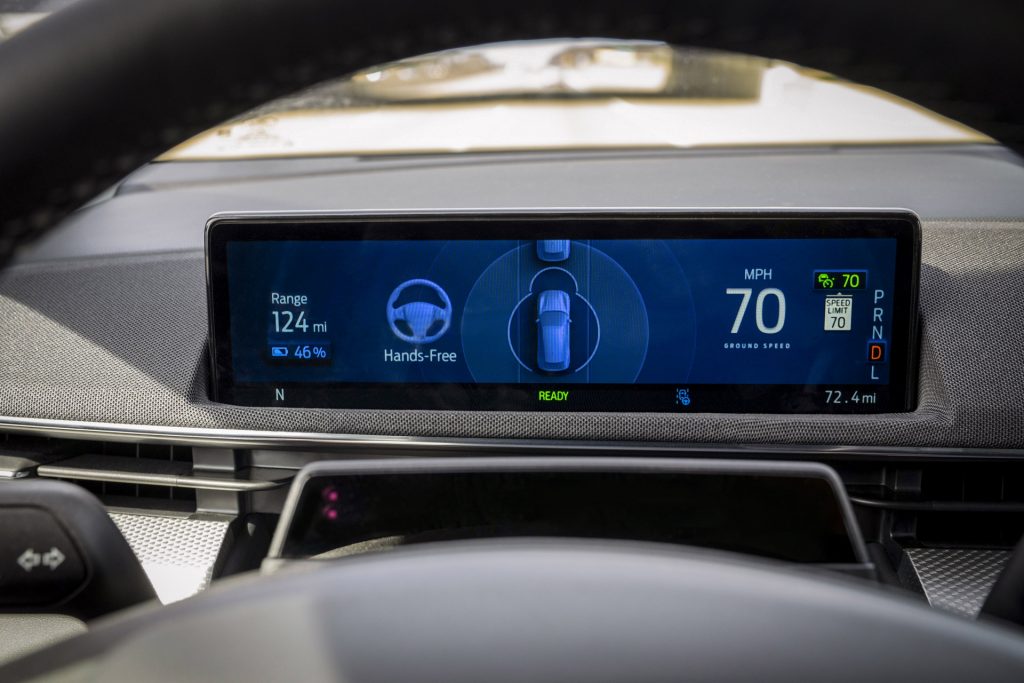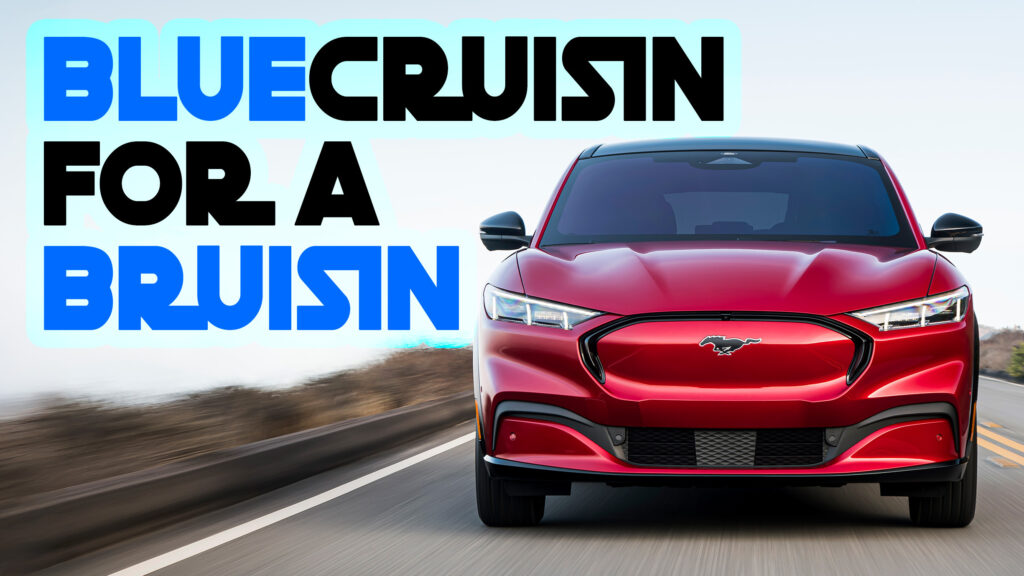- US authorities are getting serious about an investigation into Mustang Mach-E crashes.
- The NHTSA opened a probe last year into Ford’s BlueCruise driver-assist system.
- Regulators decided there were grounds for an engineering analysis of the technology.
US authorities could be about to show Ford’s BlueCruise system a red light. A preliminary investigation into the safety of the tech has been pushed through to the next level, and may ultimately lead to a massive recall.
America’s National Highway Traffic Safety Administration (NHTSA) opened a probe last spring after receiving multiple reports of crashes involving Mustang Mach-E crossovers equipped with BlueCruise. Two accidents resulting in fatalities were connected to the driver-assist feature that allows drivers to take their hands from the wheel for extended periods provided a dash camera verifies they’re still watching the road.
Related: US Probes Second Ford Mustang Mach-E Crash In Two Months
But that initial probe has been upgraded to a full-blown engineering analysis, investigators in the first study having decided there are sufficient grounds to warrant a real deep dive. They suggest BlueCruise has problems detecting stationary vehicles when traveling at freeway speeds at night.
The NHTSA claims Ford specifically programmed the adaptive cruise control (ACC) used by its BlueCruise and less flashy Lane Centering Assist (LCA) systems to ignore reported stationary objects when traveling at 62 mph (100 km/h) or more to avoid instances of false identification. It also says the systems, which use a combination of camera and radar sensors, might not perform well when visibility is poor.

In both fatal collisions the Mach-Es were traveling over 70 mph (113 km/h) on a highway at night with hands-free BlueCruise engaged when they collided with stationary vehicles. Two other crashes looked at by investigators involved other Ford models fitted with LCA, and in reports of near-misses drivers spoke of the adaptive cruise failing to respond and slow the car, forcing the Pre-Collision Assist (PCA) to jump in and save the day.
While a preliminary probe is more of a desk-based fact-gathering exercise, in an engineering analysis the NHTSA’s team puts cars through their paces to ascertain the cause of the fault and whether it poses a danger. If the test team decides the BlueCruise system is deficient, Ford could be forced to recall almost 130,000 Mach-Es built for the 2021-24 model years.
Ford rolled out an updated BlueCruise 1.5 for the 2025 Mach-E that is capable of automatic lane changes.





